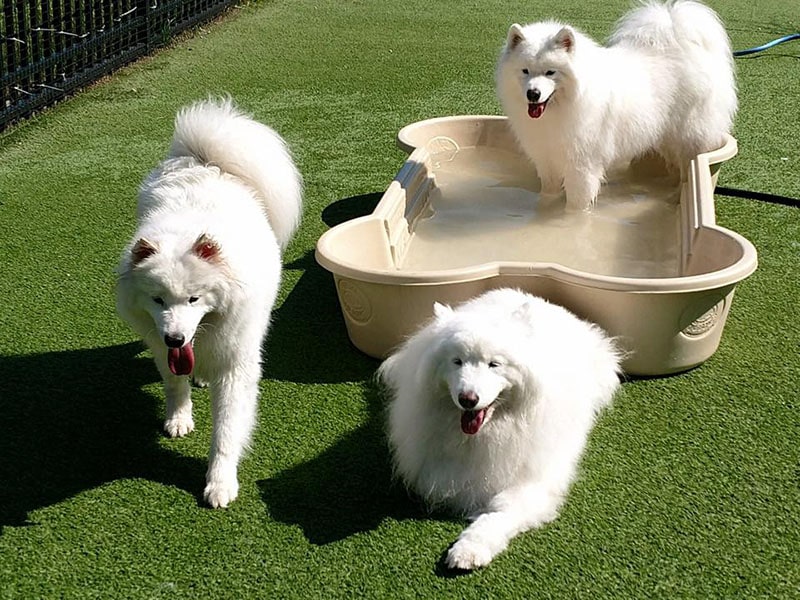The dog, an animal species belonging to the group of the canids, is considered man’s best friend today because it stays by his side at all times. However, it has a much shorter life expectancy compared to a human being.
How long does a dog live?
Without a doubt, when we have a little furry dog at home as a pet, all human beings come to create an indescribable bond of love with them. Our dog becomes our best friend, fun and life partner, because they are by our side at all times.
But it is because of this beautiful bond of love that we also begin to fear that the day will come when they will be gone forever, as we all want less than that to happen. It is at this moment that we begin to ask ourselves how long does a dog live? Well, you should know that a dog has an average life span of 12 to 15 years. However, this will depend on a number of factors, so it won’t be the same life span for everyone.
If you are interested in knowing exactly how long dogs live you need to check fundamental factors:
- Race
- Size
- Lifestyle
- Care
When you make sure you rank your dog on each of these factors you will be able to calculate a life span estimate. Because there are breeds that have a longer life expectancy. In addition, small-breed dogs live longer due to their condition, and your dog’s lifestyle and daily care will play a major role in his health and the years he may live.
How long do small dogs live?
As mentioned above, small or small breed dogs live longer than a large breed dog. Now, if you’re wondering how long a small breed dog lives, the answer is simple. A small breed dog will live an average of 16 years. However, this lifespan will also depend on the breed, as some small-breed dogs are much longer than others. An example is the French poodle and the Chihuahua, as they are dogs that can live up to 20 years.

How many years do large breed dogs live?
Although it has been proven that large breed dogs live much less time than small breed dogs and a little less than medium breed dogs, it is not really known what the fundamental reason is for this to happen. It is only known that the accelerated growth of large-breed dogs leads to accelerated aging as well. So, large dogs will live less time than small-breed dogs due to the premature onset of senescence or aging.
This is why large-breed dogs live an average of 8 to 10 years. Although some will live up to 12 years. It all depends on the other factors already mentioned: breed, lifestyle and care. Taking more into account within this last one the feeding, how many-years-old live the big-breed-dogs
How long do dogs live according to the breed?
The breed is a fundamental aspect in determining the life span of a dog. This is because there are breeds that live longer than others. Also taking into account that when talking about size, small breeds will live longer than large breeds. So it all depends on each specific case.
On the other hand, a particular case that we must take into account when talking about breeds and life span of dogs is the pedigree. This is due to the fact that in the effort of breeders to maintain totally pure breeds sometimes genetic mutations are transmitted that lead to the development of diseases that are inherited from generation to generation such as hip dysplasia.
All these conditions influence in that the time of life of the dog diminishes and of course its quality of life when suffering a complicated condition of health during all its life. It is even for this reason that mestizo or creole dogs as they are called here in Colombia get to live for a long time and enjoy excellent health throughout their lives.
Life expectancy of dogs. How to increase it?
Accepting that your dog is getting older and may die at any moment is quite difficult. However, death is a certainty for everyone and is impossible to avoid. What we can do, as humans and dog parents, is to take action to help maintain the quality of life and health of our pets.
That is, in implementing the following care:
- Provide a healthy, nutritious and adequate food.
- To provide all the vaccines in established times.
- Ensure that they are periodically examined by a veterinarian to keep track of their health.
- To promote daily physical exercise that contributes to the maintenance of a healthy weight.
- Pay attention and special care to any variation in his behavior and health.
- To take care of each one of the needs or specific conditions of each breed. Whether they are orthopedic, respiratory, digestive or allergenic conditions, among others.
- Be aware of their hygiene on a daily basis.
- Provide love in large quantities. Remember that the emotional part plays a fundamental role in the health.
- You can also provide supplements and vitamins to help improve your dog’s health and performance, especially during the senior stage. However, only give them if prescribed by your vet.



